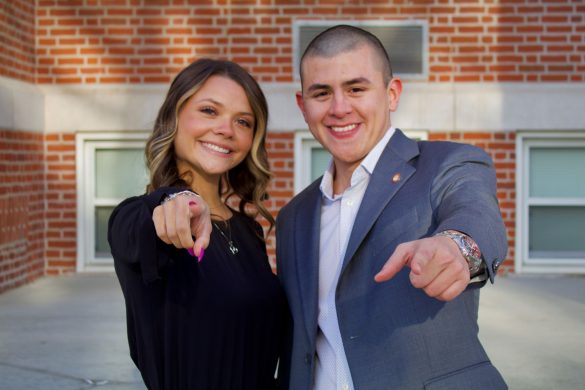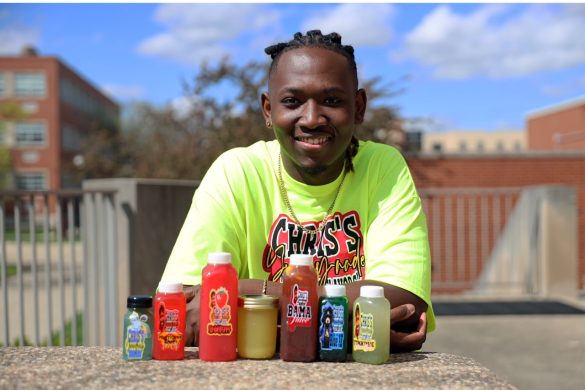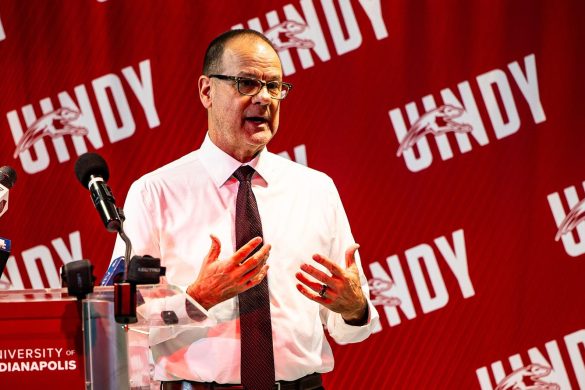Indianapolis has had a total of 106,835 crimes reported over the last six months, with 42,503 of those being theft, robbery, burglary or vandalism, according to the crime data aggregator SpotCrime website. The University of Indianapolis has experienced its share of crime during this time frame. UIndy uses Watchdog alerts, sent via email and text to registered users, to provide information to students about criminal activity on or near campus. In the past six months, the university issued 26 Watchdog Alerts, 20 of them related to attempted or successful vehicle thefts or burglaries.
According to the 2020-2021 UIndy Clery Act Report, there were a total of 334 offenses reported to the university over the course of a three-year period: 246 of those offenses occurred in 2019 and 2020, meaning that over two-thirds of the offenses occurred in the recent two of the past three years. The UIndy police department keeps daily logs of any crimes or other incidents they respond to in the form of Daily Crime Logs, according to UIndy’s Clery Act report. The Daily Crime Logs for 2021 show 834 logged responses, of which 75 were referred to UIndy administration, and nine were closed by arrest. The majority of responses were closed by report, sent to other agencies or had no witnesses and no further information was provided.
Following student concerns expressed on the UIndy App after the shooting that occurred on Oct. 19, UIndy held two informational summits to discuss the state of safety in Indiana as a whole, according to an email from University President Robert Manuel. On Nov. 3, Manuel announced in another email that Troy Riggs, former Indianapolis Public Safety Officer and Indianapolis Metropolitan Police Department (IMPD) Chief, would be collaborating with UIndy over a three-month period to design a comprehensive public safety strategy for the university. Riggs held two open forum sessions on Nov. 14 and 15 to introduce himself to students and faculty and field questions and suggestions to improve campus public safety.
At the Nov. 15 session, Riggs said that the three pillars of public safety include reducing crime, reducing the fear of crime and enhancing public safety. He said that due to the pandemic, much of the public aspect of enhancing public safety was cast to the side, and the university now has to reinstate that third pillar of public safety.
According to Riggs, Manuel deserves credit for allocating almost $500,000 to improve campus safety immediately, working inside a time frame that Riggs has not seen previously at an academic institution. Riggs said that Manuel’s proceeding to develop a long-term plan for public safety on campus is even more amazing.
“Let’s not just think in six-month intervals. Let’s not just think about next semester,” Riggs said. “Let’s think about next year. Let’s think about forging those partnerships that last maybe even past his [Manuel’s] tenure…. I think that having that type of vision for the future in public safety, really, at the end of the day, helps greatly enhance public safety in not only UIndy but, I have to say, the southside of Indianapolis.”
Riggs said that in every city there are pockets of despair that can be attributed to socioeconomic and crime issues in one area. According to Riggs, these pockets are spreading out within and around Indianapolis.
“Anybody that has any large footprint in the city—like UIndy, [another] university, a school, a hospital—you have to be concerned about some of the issues that you’re seeing, making sure that you have those partnerships with IMPD, which we enjoy here at UIndy,” Riggs said.
Constant communication is key to achieving public safety, according to Riggs. One of his goals is to review the protocols for Watchdog alerts and take into account what students want out of them.
“What do they [students] want to hear about; what format do they want it in; how often do they want it?” Riggs said. “Obviously in those [extenuating] circumstances, then let’s get it [the Watchdog alert] out now, and let’s be timely. What I hear is [that there are] too many of them [Watchdog alerts] at times, and then sometimes they’re not timely or not thorough enough.”
Riggs said that the conversations he has had so far represent a great beginning for his time at UIndy. He said that students have to play a role in fine-tuning the public safety system in place by giving him information to work with.
“They [students] have shared quite honestly with me….,” Riggs said. “The students here have been remarkable; their input has been remarkable. They’re big thinkers and I think that’s refreshing and that means that they’re going to be actively engaged in keeping their campus safe.”
According to Riggs, Manuel will hold a meeting in early January, when they will roll out what will be implemented in the long-term plan. Riggs said that he thinks the UIndy community can expect to see an impact on campus safety soon, with the implementation of lighting and mobile cameras around campus. He said that he also believes an impact will be made in the form of UIndy Police getting out of their squad cars and interacting more with students.
Riggs said that he will return to campus to meet with a lot of people. He said that being overbooked is a good indicator of the desire for engagement.
“People want to be engaged,” he said. “When people want to be engaged, and we have the leadership you have here, [and] you have student involvement like we do here tonight [Nov. 15 event]—we’re going to be OK long-term, but it’s going to take a lot of work to get there in January.”
Riggs said that he encourages students to reach out to him via email at riggsdt@uindy.edu with questions or suggestions or to schedule meetings to discuss campus safety with him.








